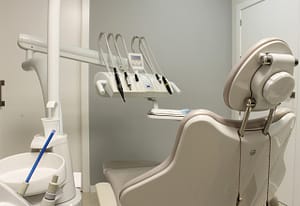Sedation Surgery insight

Many people hesitate to visit a dentist due to the fear that the dental procedures may cause pain and high discomfort. Sedation Dentistry is a solution for these people to feel relaxed during the procedure.
What is Sedation Dentistry?
The dentist, by the application of a drug before the dental procedure, gives you a relaxed and painless treatment, procedure or surgery. One sedation dentistry makes you unconscious while others give you a relaxation but won’t make you unconscious.
There are three types of sedation dentistry, which are:
1. Nitrous Oxide
This is a gas which relaxes the patient during the surgery. Its advantage is that it wears off quickly so that the patient can drive back home after the surgery.
2. Oral Sedatives
Oral sedatives also will help to reduce anxiety during the procedure. Example diazepam makes won’t knock you out completely instead you will get a sleepy feeling until it wears off.
3. Intravenous sedative
IV sedatives can take on different levels of unconsciousness. This is also called general anesthesia. Some other IV drugs take you to half sleep stage where you are less aware of what’s happening in the surroundings, and you may not remember about the procedure after it is completed. The term “sleep dentistry” generally means “general anesthesia”.
How does Sedation Dentistry work?
The sedation process depends on the type of sedation dentistry you choose. For nitrous oxide sedation you don’t need any precaution or preparation before the procedure. You will be given it before after and during the procedure and it will take you to a drowsy and anxiety free stage.
For oral sedations, the dentist will give a prescription and instruction on how to take it. Once the medicine starts working, it will give you reduced anxiety, increased relaxation and may feel drowsy.
For IV drugs you have to prepare before the procedure. You should avoid taking some medications on the prior day of the treatment as they may interfere with the drug being used for sedation. You may have to fast – avoid food and drinks – for many hours before the procedure.
Who needs Sedation Dentistry?
Not everyone may require sedation dentistry. People who opt for the sedation dentistry will hav e their own reasons for that. It could be phobia related to dental procedures or bad experience with a previous dental work.
e their own reasons for that. It could be phobia related to dental procedures or bad experience with a previous dental work.
Another reason could be that a small mouth became sore during the procedure, general anxiety disorder, resistance to local anaesthesia etc.
What to consider before selecting a Sedation dental treatment
Some people like general anesthesia or sleep dentistry, but it has some side effects compared to other methods of sedation dentistry. Talk to your dentist about the options you have and side effects of each. Also, reveal any allergic conditions you have or allergies to particular medicines or anesthesia in the past to the dentist. You can also discuss the possibility of local anaesthesia which numbs your mouth during the procedure.
Not all dentists may practice all types of sedation dentistry. So carefully select your dentist after inquiring his experience and practice.